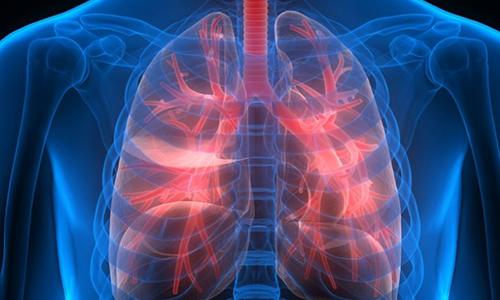New Medicine to Treat Pulmonary Fibrosis
May 30, 2018
Source: Ddu
 744
744

Treatment of pulmonary fibrosis, a common and serious lung disease, is an enormous task. It is difficult to know how this disease damages the lung tissue, which forced scientists to utilize expensive and laborious techniques to assess the efficacy of varied treatments.
Till date, there were only two drugs named nintedanib and pirfenidone, which were approved by the U.S. Food and Drug Administrations for the treatment of pulmonary fibrosis. But these drugs would treat only one type of lung fibrosis named idiopathic pulmonary fibrosis. As per the American Lung Association, there are around 200 types of lung fibrosis which affect other organs like the liver, heart and kidneys.
A research team from the University at Buffalo devised a technique named lung-on-a-chip technology using microlithography, where lab-grown lung tissue was placed upon a thin and flexible chip array. Fibrosis was artificially induced, where the lung cells were contracted and stiffened leading to scars in alveoli cells. This lung-on-a-chip technology could successfully test varied potential treatments against pulmonary fibrosis.
The research was fully supported by the National Institutes of Health, the UB School of Engineering and Applied Sciences, the Jacobs School of Medicine and Biomedical Sciences at UB, and the Clinical and Translational Science Institute at UB.
The lead researcher Dr. Ruogang Zhao, assistant professor in the Department of Biomedical Engineering from University at Buffalo said, "Obviously it's not an entire lung, but the technology can mimic the damaging effects of lung fibrosis. Ultimately, it could change how we test new drugs, making the process quicker and less expensive."
By DduRead more on
- Things to Know before Buying Newborn Baby Incubators March 31, 2022
- Highly Resistant Food Poisoning Bug Responds to Antibiotics September 6, 2018
- Smartphone Based Diagnosis to Identify Mosquitoes Transmitting Infection September 5, 2018
- 3 Natural Plant Extracts Manufacturers on Drugdu.com September 4, 2018
- Shenzhen Chuanggan – Health Assessment Facility Supplier September 4, 2018
your submission has already been received.
OK
Subscribe
Please enter a valid Email address!
Submit
The most relevant industry news & insight will be sent to you every two weeks.



